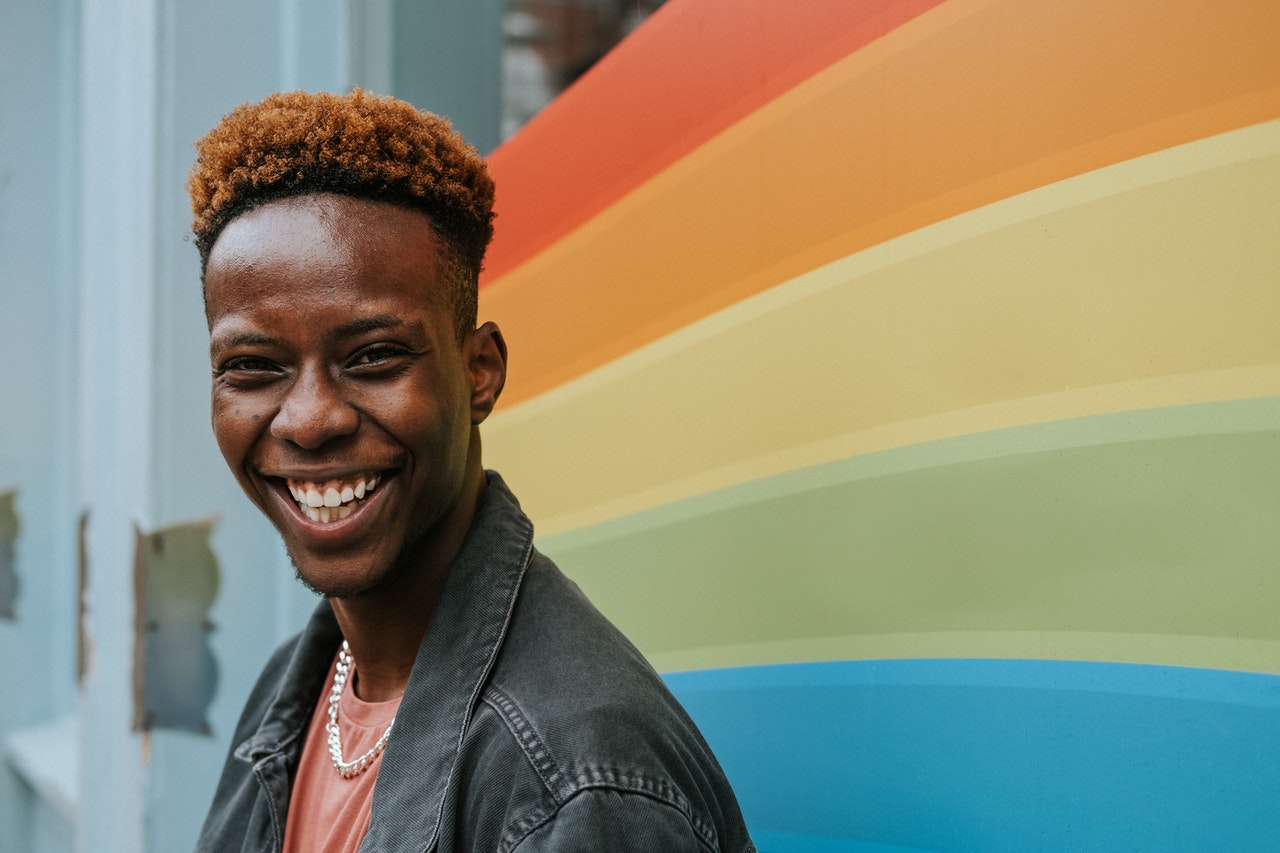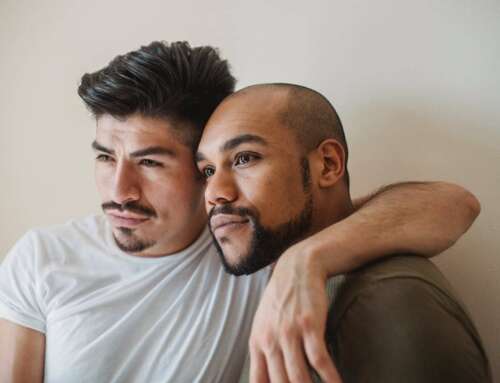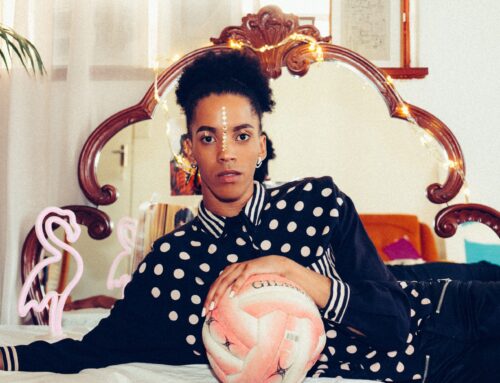Mary Awudi, SCU Marketing Associate, contributed to this essay.
Many of us, as practicing or aspiring sex coaches, already accept the wide range of sexual behaviors, sexual orientations, and gender expressions that are possible—especially if we have participated in a SAR. Therefore, you may identify as an LGBTQ+ “friendly” or “affirming” sex coach. But are you an LGBTQ+ ally?
Allyship takes our friendly stance a step further. Being friendly and affirming is great—and so necessary—but how are you advocating for your LGBTQ+ clients? How are you speaking out against discrimination, violence, and injustice? How are you standing up for your clients and people like them? How are you demonstrating your allyship through your intake forms, interviews, word choice, name and pronoun usage, and more? How aware are you of your privilege and how do you leverage that to help those with less privilege?
June is international LGBTQ+ Pride Month and it’s a great time to learn how to be a (better) ally. In the United States, Pride Month isn’t just about celebrating queerness in all its varied manifestations. It’s actually more about commemorating the Stonewall Riots and how they sparked a powerful political movement designed to push back against LGBTQ+ discrimination and to fight for equal rights. And it’s also about honoring those who have lost their lives, jobs, homes, or children as a direct result of having their sexual or gender identity vilified in our culture.
When we join in on Pride celebrations every year, we show the LGBTQ+ community how supportive we are of their journey toward acceptance, equality, increased visibility, and liberation. It is also our chance to show the world that good sex coaching is nondiscriminatory. We cater to all clients regardless of their sexual orientation, sexual identity, or gender identity.
By being a better LGBTQ+ ally, you as a sex coach can assist your clients with their concerns, help them feel understood, accepted, and supported, and also promote their equal rights and protections.
Create an LGBTQ+ Affirming Practice
We will encounter clients at various stages of their sexual orientation and gender identity development who need help expressing their sexuality, navigating sexual relationships, and accepting themselves for who they are. Many will be struggling against internalized messages of negativity from their culture, family, and religion.
To work affirmatively with these populations is to understand and acknowledge the negative influences that homophobia, transphobia, and heterosexism have on the lives and relationships of all clients.
No matter where they fall on the sexual/gender identity matrix, we can counterbalance the cultural stigma that clients have had to deal with by explicitly affirming their identity. Constant reminders that they are normal, their sexual attraction is valid, and their sexual expression is legit, help.
What also helps is making sure your intake forms are stripped of gendered language and allow clients to fill in their own identity terms for their gender, their sexual orientation, the term(s) they use to refer to their significant other(s), and their relationship configuration. Check all your reading materials and other resources for affirming language, as well.
Watch the word choices you use during interviews to ensure you’re not inadvertently slipping into ways of speaking you grew up with that may be inaccurate, incomplete, invalidating, or offensive. Ask questions to ascertain each individual client’s understanding of their reality and listen attentively, making note of the words they use for themselves. Don’t make assumptions based upon their visual presentation. Make every effort to use the name and pronoun(s) your client has identified themselves with, and if you slip up, immediately apologize and correct yourself.
Another way to show your support and allyship in the coaching session is to do your own homework, on your own time. Don’t ask your clients to use their session time that they are paying for to educate you about the larger topics of gender, sexuality, and relationship diversity. And don’t ask your clients to be representatives of the populations they identify with. LGBTQ+ is an umbrella (but not monolithic) term. Rather, it encompasses many different groups of people, and even within those groups, there is vast diversity.
Be A Better LGBTQ+ Ally Through Continuing Professional Development

Photo by Anna Shvets from Pexels
One important step to becoming a better ally is being comfortable with and knowledgeable about the possibilities of sexual expression and being trained specifically in how to work with LGBTQ+ clients.
Continuing Professional Development around LGBTQ+ identities and practices will equip you with the knowledge and skills to work with clients in these groups more effectively and respectfully. You will understand better how to deal with sexual concerns that the client might present with, from overcoming issues related to internal and external homophobia and questioning their sexuality to dealing with gender dysphoria, and more.
But also consider educating yourself outside of any Continuing Education requirements you may have. Learn about both the history and the current concerns of the population you are or want to work with.
Check Your Privilege to be a Better LGBTQ+ Ally
People often misunderstand the concept of privilege. At its core, the modern usage of this term refers to the invisible factors that you benefit from based on certain attributes you possess upon which your society places more value.
If your sexual or gender identity is considered the “norm” (e.g., cisgender and heterosexual), you have more power in your society. Others with similar privilege will be more inclined to give your words weight than the words of someone they (consciously or unconsciously) look down on or simply misunderstand. Therefore, you have an opportunity to use that privilege to change the system that invalidates and harms those without privilege.
“We aren’t the same. And acknowledging difference is an important first step in working towards equality. If we can’t recognize the ways in which we have privileges, we will be complicit in a system that rewards some and not others. We will be co-signing inequity.” — Sam Dylan Finch, excerpt from his article “Ever Been Told to ‘Check Your Privilege?’ Here’s What That Really Means.”
Advocate for Your LGBTQ+ Clients
As an ally, you need to actively be involved in the fight toward ending homophobia, transphobia, cissexism, and heterosexism. Let the LGBTQ+ community know you are supportive of their rights, and take a stand publicly. Get involved in community events, activities, and social media conversations about sexual and gender diversity, and educate people in the process.
Speak out when you witness someone denigrating others on the basis of actual or perceived gender identity or sexual orientation. Silence is complicity, because when you don’t challenge others on their wrong or insulting statements, they take your silence as agreement. And it reinforces their beliefs. You needn’t do this aggressively. Rather than calling someone out (which can also reinforce their stance), try calling them in to discuss and learn and feel into another reality.
Write to, text, email, or call your political representatives to discuss how they can contribute to a more just and equitable society and legal system. When a specific bill is being debated that may have a direct impact on the LGBTQ+ communities, increase your reach-outs to both your politicians and others in your sphere of influence.
By taking a stand publicly, you will make yourself known as the right sex coach to LGBTQ+ folks who might be finding it hard to locate a sexuality professional who can help with their sexual concerns.
Helpful Resources
There are several other ways to be a better LGBTQ+ ally as a sex coach. One of them is providing access to resources that are helpful to the needs of clients who identify as LGBTQ+. You can have a lending library with books, DVDs, websites, videos, etc. that clients can learn so much from. You can also direct clients to both online and offline communities around their gender and sexuality that can act as a vital buffer against the barrage of negativity they have to wade through on a daily basis.
By being better allies to the LGBTQ+ community, we as sex coaches can empower our clients, colleagues, and friends to move towards self-acceptance and the acceptance of others. This can help foster harmony and help with the fight against the oppression of the LGBTQ+ community.
Happy Pride!
Curious about training to become a Certified Sex Coach™? Join the next live Info Session to meet the SCU team and participate in a live Q&A!




